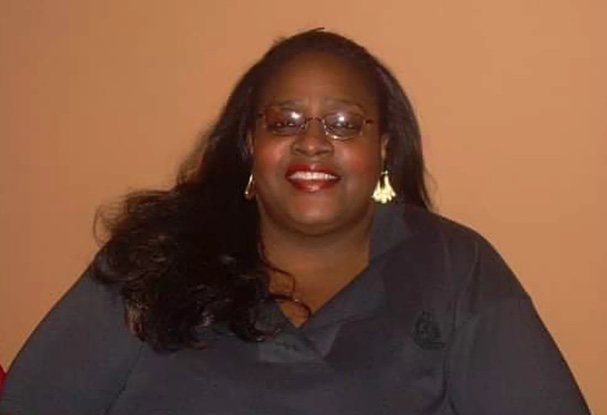DISCLAIMER
The information and materials accessed through or made available for use on any of our Sites, including, any information about diseases, conditions, treatments, or medicines, are for informational purposes only. The Content is not intended to be and is not a substitute for professional medical advice, diagnosis, or treatment, and your participation on our Sites does not create a healthcare professional-patient relationship. You should consult a doctor or other qualified health care professional regarding any questions you have about your health or before making any decisions related to your health or wellness. Call your doctor or 911 immediately if you think you may have a medical emergency.compose your message
message sent
email sent successfully
Trusted Resources: News & Events
Latest announcements and gatherings
Patricia Frieson was more than the 1st COVID-19 death in Illinois. She was their sister.
When she was 11, her parents, Dan and Effie Frieson, who’d migrated to Chicago from Arkansas in the late ’50s, sent Patricia Frieson to live Down South.
Her grandfather had died, and she was to live with her grandmother in Helena, Ark.
It’s where she’d grow up, finish high school at Barton High in Barton, Ark., go on to attend the nursing program at Phillips Community College there and receive her nursing license.
Frieson, sixth in a family of nine siblings — the others raised in Bronzeville before the family moved to a four-flat in Auburn-Gresham in the mid-70s — passed away Monday at age 61, survived by seven siblings, and her seven beloved nieces and nephews.
The world now knows Frieson as the first person to die of the novel coronavirus in Illinois.
But while her name draws this tragic note in history, one South Side family, in which she played a central role — her apartment in that four-flat the focal point of any gathering — mourns.

 +myBinder
+myBinderRelated Content
-
education & researchHow to Prepare Your Family in Case COVID-19 Spreads in Your CommunityHere is what you can do to prepare your ...
-
videos & visualsYou Should Get a COVID-19 Vaccine – Arabichttps://www.youtube.com/watch?v=YQBfcUyB...
-
news & eventsCOVID-19 Health Alert for Patients and Caregivers – SCDAAMay 27, 2020 – COVID-19, the coronav...
-
news & eventsNORD Launches Financial Assistance Program for Rare Disease Community Members Impacted by COVID-19At this time of crisis and with the heal...
-
news & eventsDepression & the Sickle Cell Warrior – WebinarThe Sickle Cell Mental Health Initiative...
-
education & researchHow to Talk to Your Kids About CoronavirusEarlier this week, I overheard my kids e...
-
videos & visualsCOVID-19 & Sickle Cell Disorder (Sickle Cell Foundation Nigeria)https://www.youtube.com/watch?v=7HJGuphu...
send a message
To improve your experience on this site, we use cookies. This includes cookies essential for the basic functioning of our website, cookies for analytics purposes, and cookies enabling us to personalize site content. By clicking on 'Accept' or any content on this site, you agree that cookies can be placed. You may adjust your browser's cookie settings to suit your preferences. More Information
The cookie settings on this website are set to "allow cookies" to give you the best browsing experience possible. If you continue to use this website without changing your cookie settings or you click "Accept" below then you are consenting to this.
Support for this site is provided by

This platform is made possible through a partnership with the Sickle Cell Disease Association of America, Inc. (SCDAA) and its member organizations. SCDAA's mission is to advocate for people affected by sickle cell conditions and empower community-based organizations to maximize quality of life and raise public consciousness while advancing the search for a universal cure.




